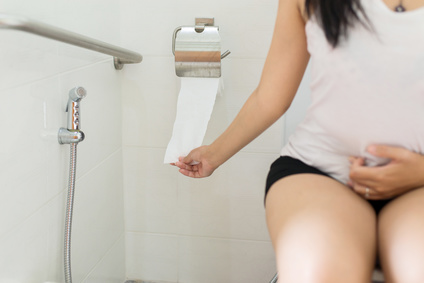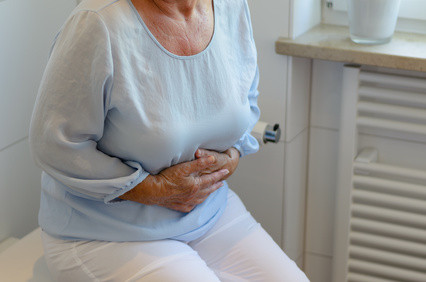Steatorrhea (Fatty Stool) – Causes of Greasy, Oily Bowel Movements
What is Steatorrhea?
Steatorrhea or steatorrhoea (UK) is the presence of fat in the stool. While small amounts of fat in the stool may go by unnoticed, larger quantities can change the color, consistency, buoyancy and even size of the stool. Steatorrhea may present as stool that floats (‘floater’), stool that is greasy or oily, gray to pale yellow in color and sometimes large.
Often steatorrhea is seen with loose watery stool and diarrhea, although it may occur with normal bowel movements as well. Mucus in the stool is often mistaken for steatorrhea but it is a different condition, often associated with inflammatory bowel disease and other causes of colitis. Steatorrhea may arise due to the following causes :
- Inadequate fat digestion due to a deficiency, absence or defect in the fat-digesting enzymes or bile
- Rapid transit through the bowel which prevents proper digestion and absorption
- Defective absorption, often due to a disruption in the transport of fats through the lacteals to the blood stream
Steatorrhea is often associated with malabsorption syndromes which may give rise to other nutrients deficiencies. These deficiencies may also contribute to the overall appearance of the stool.

Digestion of Fat
Triglycerides (neutral fats) are the most abundant lipids in the human diet with smaller quantities of phospholipds, cholesterol and cholesterol esters also being ingested. Majority of the lipid digestion occurs in the small intestine although the process begins in the stomach due to the action of lingual lipase secreted in the saliva.
The first process in efficient fat digestion is to break down the fats into smaller globules. It starts in the stomach but most occurs in the duodenum due to the action of bile, particularly bile salts and lecithin in the bile. The fat digesting enzymes particularly pancreatic lipase then hydrolyze the fat globules into simpler compounds like monoglycerides and fatty acids. Refer to pancreatic digestive enzymes. Other digestive enzymes are also responsible for fat digestion.
Absorption of Fat
Most lipids cannot enter the blood stream to travel to the liver for processing because it is not water soluble. The lymphatic system therefore plays an integral role in transporting lipids to the liver. Small quantities of short- and medium-chain fatty acids can however enter the portal blood stream and travel directly to the liver for processing.
When fats are broken down into simpler compounds like monoglycerides and fatty acids, it binds to the bile salts in duodenum to form micelles. These compounds are now soluble in the intestinal chyme. Once among the microvilli of the intestinal lining, the monoglycerides and fatty acids diffuse out of the micelles and into the epithelial cells. The bile acids are recycled in the duodenum to help transport other monoglycerides and free fatty acids.
In the epithelial cell, most of the monoglycerides and fatty acids are reconstituted into triglycerides and released into the surrounding lymphatic ducts in the form of chylomicrons. Here it travels into the thoracic duct and drains into the venous circulation to be processed by the liver.
Causes of Fatty Stool
The term ‘fatty stool’ is used to describe stool that is greasy or oily, often floats and is bulky. The medical term for this type of fatty stool is steatorrhea. It may also appear frothy, gray to pale yellow. In mild cases, steatorrhea may remain unnoticed for long periods of time. Patients may only report noticing some greasiness upon wiping and that some bowel movements may result in floating stool, often only after eating fatty meals. In severe cases, the appearance of the stool is clearly abnormal.

Digestion Problems
Fat digestion primarily depends on the action of pancreatic lipase although other fat-hydrolyzing digestive enzymes are also responsible to a lesser extent for fat digestion. Some of the conditions that may result in a disruption in the digestion of fats includes :
- Pancreatitis (acute or chronic)
- Pancreatic cancer
- Other causes of pancreatic enzyme deficiency (exocrine insufficiency)
- Gallstones, particularly bile duct stones
- Primary sclerosing cholangitis
- Zollinger-Ellison syndrome
Absorption Problems
Malabsorption syndromes are often characterized by steatorrhea. The causative conditions affect the absorption of fats through the intestinal lining and transport of fats through the lacteals. The formation of micelles is impaired with small bowel bacterial overgrowth, which is necessary for the absorption of fats into the epithelial cells lining the small intestine.
- Celiac disease
- Inflammatory bowel disease, particularly Crohn’s disease
- Small bowel bacterial overgrowth
- Abetalipoproteinemia
- Whipple’s disease
- Excessive use of slimming tablets containing orlistat
Rapid Gut Transit Time
The transit of chyme through the gut is carefully regulated in order to ensure there is sufficient time for the digestive enzymes to act on food and absorb through the intestinal lining. Any increase in the transit time may affect the digestion and absorption of nutrients, including fats.
- Diarrhea
- Possibly irritable bowel syndrome (diarrhea-predominant IBS)
- Short bowel syndrome
- Excessive use of laxatives




